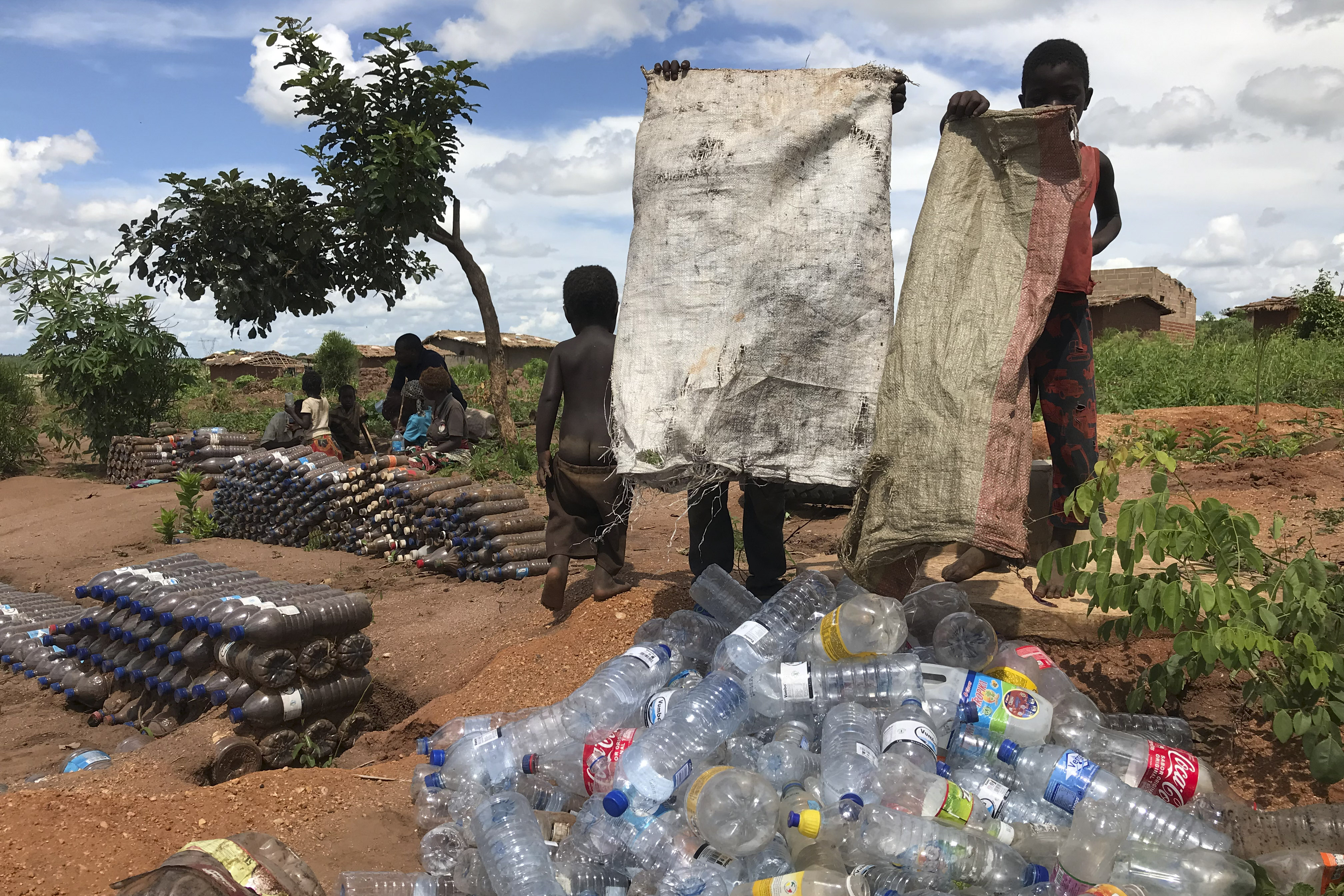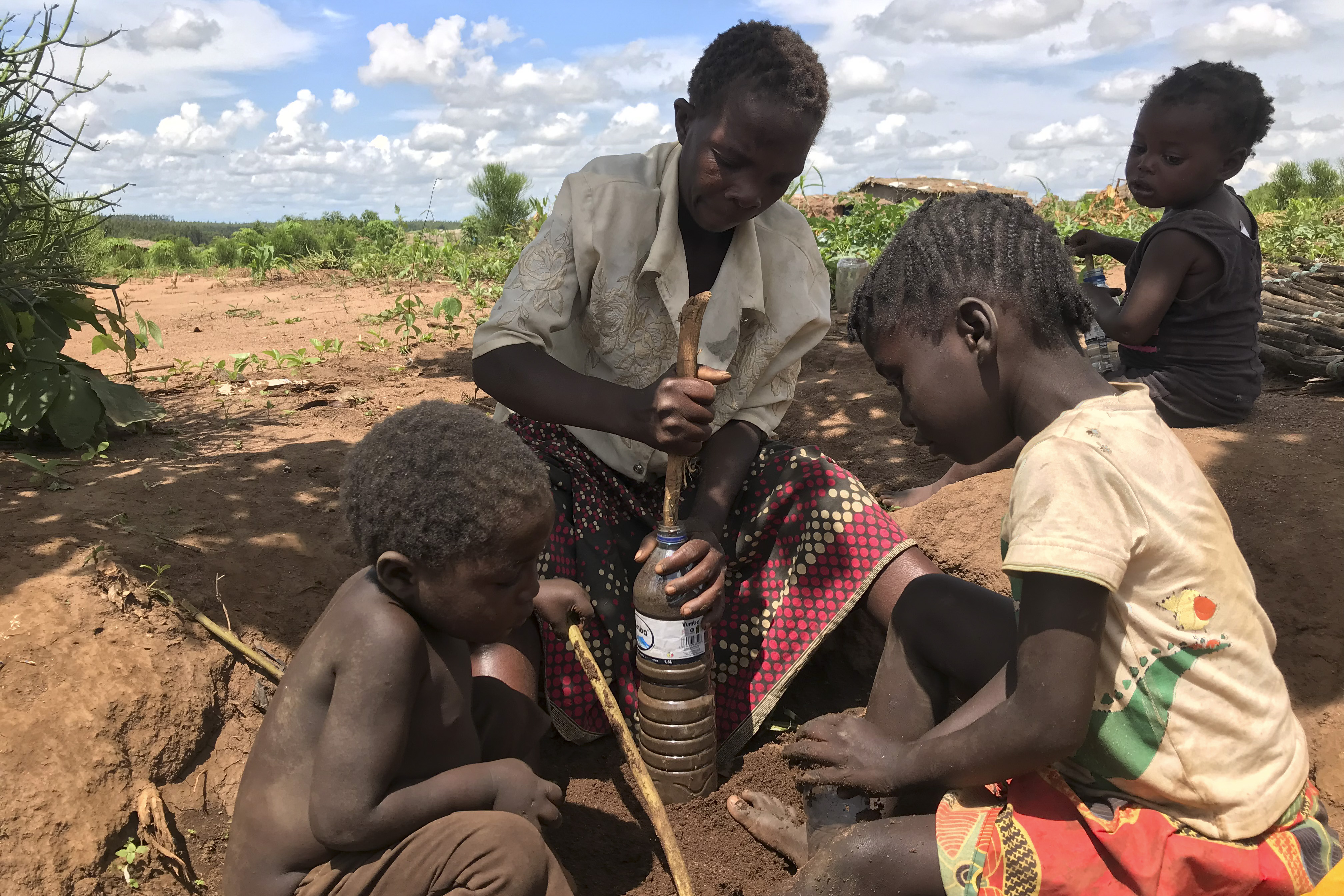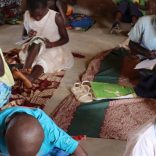Mozambique: India provides $1M in medicines, prosthetic limbs
Houses made from recycled bottles for IDPs in central Mozambique – Photos

Photo: Lusa
Valisse Alficha has twice fled conflict between government forces and the armed wing of Renamo, under the command first of Afonso Dhlakama, in 2016, and then in 2019 under Mariano Nhongo.
“I fled from Gorongosa (Sofala) to Mucorozi (Manica) when the war was hot, but then I had to flee again to Gondola because there was a lot of confrontation in our village,” Alficha tells Lusa.
The 1.35 metre-tall 64-year-old, who lost three of his nine children in the conflict, recalls spending rainy nights out in the open or crouching in a hut made of clay blocks in a suburb of Gondola, a railway village next to Chimoio, capital of Manic provinces, in central Mozambique.
“When we arrived here in Gondola, after leaving everything behind, we were welcomed in a church and then taken to this neighbourhood,” he says. There, they received land.
A man of slow and trembling speech, he says he has no means to build “a decent home”.
Alficha’s is among 50 families displaced by the conflict who live in temporary shelters and are due to benefit from eco-houses built from plastic and glass bottles collected from the village’s garbage dumps.
These are the first eco-houses in central Mozambique. A similar project is being implemented in Maputo, in the south of the country.
Virgílio Jambo, councilor for health and sanitation in the municipality of Gondola, says that the project, in addition to helping to clean up the village, will solve the housing problem.
A house with one bedroom, living room and balcony uses 17,000 plastic bottles, while a glass house of the same size uses 27,000 bottles.
“The idea is to have an eco-friendly neighbourhood,” Virgílio Jambo tells Lusa.
The construction of ecological houses is an initiative of the Anglican Church in Mozambique – part of a humanitarian project helping to rebuild the lives of displaced people and provide safe homes for the elderly, widows and orphans.
After initial help with food and clothing, precarious housing remained an unresolved problem, the Anglican priest of the Church of Gondola, Francisco Charles, explains to Lusa.
“The Church cannot live on the Gospel alone,” he says.
“We saw that we could do something to bring a smile to those people who are suffering and we decided to launch a campaign to support the construction of these houses,” he says.
Another beneficiary will be Lusinha Campira, who does not remember her age, but recalls in detail how she dragged herself for hundreds of metres to escape gunfire near her hut, which was subsequently burned down.
“Shooting started in Pindanganga and we fled here. In this neighbourhood, I’m in a borrowed house, because my tent fell down – it was already badly torn,” the elderly woman tells Lusa.
Campira gets emotional when she is taken to visit near future residence. “This bottle house is my only hope, and I look forward to being able to live there,” she adds.
The collection and filling of the bottles used in the construction involve the beneficiaries themselves, who are paid for the job, so as to help with their income.
The project, which started in September, 2021, with funding from Tearfund, an international Christian agency, will last for three years, and has already built two of the 50 houses planned.
By Andre Catueira

















Leave a Reply
Be the First to Comment!
You must be logged in to post a comment.
You must be logged in to post a comment.